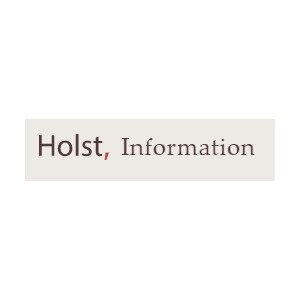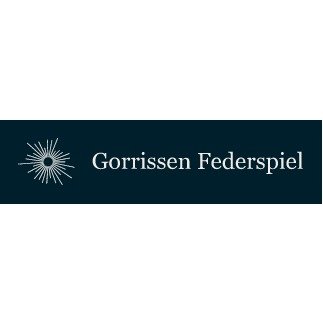Best Housing, Construction & Development Lawyers in Denmark
Share your needs with us, get contacted by law firms.
Free. Takes 2 min.
Free Guide to Hiring a Real Estate Lawyer
Or refine your search by selecting a city:
List of the best lawyers in Denmark
About Housing, Construction & Development Law in Denmark
Housing, Construction & Development law in Denmark encompasses the regulations, policies, and procedures governing residential and commercial property constructions, land use, zoning, and urban development. This area of law ensures that buildings are constructed safely and efficiently, land is used appropriately, and developments occur in harmony with the environment and community interests. Danish laws in this domain are comprehensive, covering everything from architecture and building permits to environmental impact assessments and property transactions.
Why You May Need a Lawyer
Individuals and businesses may require legal assistance in the field of Housing, Construction & Development for several reasons, including:
- Planning and Zoning Disputes: Navigating disagreements with municipal authorities or neighbors regarding land use or zoning regulations.
- Construction Contracts: Drafting, reviewing, or enforcing construction contracts to ensure all parties meet their obligations.
- Property Transfers and Development: Handling the legalities involved in buying, selling, or developing real estate properties.
- Environmental Compliance: Ensuring construction and development projects comply with Danish environmental laws and regulations.
- Licensing and Permits: Assisting with obtaining necessary permits and licenses for construction or renovation projects.
Local Laws Overview
Understanding the key aspects of local laws can greatly assist those involved in Housing, Construction & Development in Denmark. Some notable regulations include:
- Building Act (Byggeloven): Governs construction processes, ensuring buildings meet safety and infrastructure standards.
- Plan Act (Planloven): Regulates land use planning, zoning, and urban development to coordinate growth and environmental preservation.
- Environmental Protection Act (Miljøbeskyttelsesloven): Sets guidelines for environmental assessments that construction projects must adhere to.
- Rent Regulation Act (Lejeloven): Outlines the legal framework for rental housing, including tenant and landlord rights and obligations.
Frequently Asked Questions
What is required to obtain a building permit in Denmark?
To obtain a building permit, one must submit an application to the local municipality, including architectural plans and relevant environmental assessments. The municipality assesses the application based on the Planning Act and other local regulations.
Can I challenge a zoning decision made by my local municipality?
Yes, you can typically challenge a zoning decision through the local Planning Appeals Board (Planklagenævnet) if you can demonstrate that the decision negatively impacts your property or interests.
What are my rights as a tenant in a rental property?
Tenants are protected under the Rent Regulation Act, which grants rights such as fair rental pricing, maintenance responsibilities of the landlord, and protection from unjust eviction.
How is property tax determined in Denmark?
Property tax is calculated based on the assessed value of the property. The valuation considers factors like location, size, and usage. Municipalities set local tax rates within a framework established by the national government.
How long do construction projects usually take to be approved?
Approval timelines vary based on project complexity and municipal workload. Simple residential projects might be approved in a few weeks, whereas large-scale developments could take several months.
What is the role of environmental assessments in construction projects?
Environmental assessments, mandated by the Environmental Protection Act, evaluate potential environmental impacts of construction projects, helping ensure minimal ecological disruption.
Are there specific laws for heritage or historic buildings?
Yes, Denmark has specific regulations under the Conservation Act (Bygningsfredningsloven) that protect heritage and historic buildings, often requiring special permits for renovations or alterations.
Can foreign nationals buy property in Denmark?
Foreign nationals can buy property, but must obtain permission from the Ministry of Justice unless they have lived in Denmark for a minimum of five years continuously.
What legal steps are involved in purchasing land for development?
The process involves due diligence, purchase agreement drafting, securing financing, obtaining legal and environmental clearances, and possibly rezoning, all typically guided by legal advisors.
What happens if I find construction defects after a project is completed?
If defects are detected post-completion, legal recourse typically involves filing claims against contractors or developers under warranties or construction contracts, often resolved through mediation or litigation.
Additional Resources
Several resources can assist those seeking legal advice in the Housing, Construction & Development sector:
- The Danish Bar and Law Society (Advokatsamfundet): Provides directories of certified lawyers and legal advice services.
- The Danish Building and Property Agency (Bygningsstyrelsen): Offers guidance on building standards and regulations.
- Ministry of the Environment: Resources for environmental compliance and assessment guidelines.
- Danish Construction Association (Dansk Byggeri): An industry body offering support and advice to construction firms and professionals.
Next Steps
If you require legal assistance regarding Housing, Construction & Development in Denmark, consider taking the following steps:
- Identify your specific legal needs and issues pertaining to your situation.
- Consult with a specialized lawyer or legal firm with experience in Danish property law.
- Gather all relevant documentation, including contracts, permits, and correspondence that pertain to your issue.
- Ensure you understand your legal rights and obligations under Danish law.
- Consider leveraging governmental resources or professional associations that provide additional support and advice.
Lawzana helps you find the best lawyers and law firms in Denmark through a curated and pre-screened list of qualified legal professionals. Our platform offers rankings and detailed profiles of attorneys and law firms, allowing you to compare based on practice areas, including Housing, Construction & Development, experience, and client feedback.
Each profile includes a description of the firm's areas of practice, client reviews, team members and partners, year of establishment, spoken languages, office locations, contact information, social media presence, and any published articles or resources. Most firms on our platform speak English and are experienced in both local and international legal matters.
Get a quote from top-rated law firms in Denmark — quickly, securely, and without unnecessary hassle.
Disclaimer:
The information provided on this page is for general informational purposes only and does not constitute legal advice. While we strive to ensure the accuracy and relevance of the content, legal information may change over time, and interpretations of the law can vary. You should always consult with a qualified legal professional for advice specific to your situation.
We disclaim all liability for actions taken or not taken based on the content of this page. If you believe any information is incorrect or outdated, please contact us, and we will review and update it where appropriate.
Browse housing, construction & development law firms by city in Denmark
Refine your search by selecting a city.
















